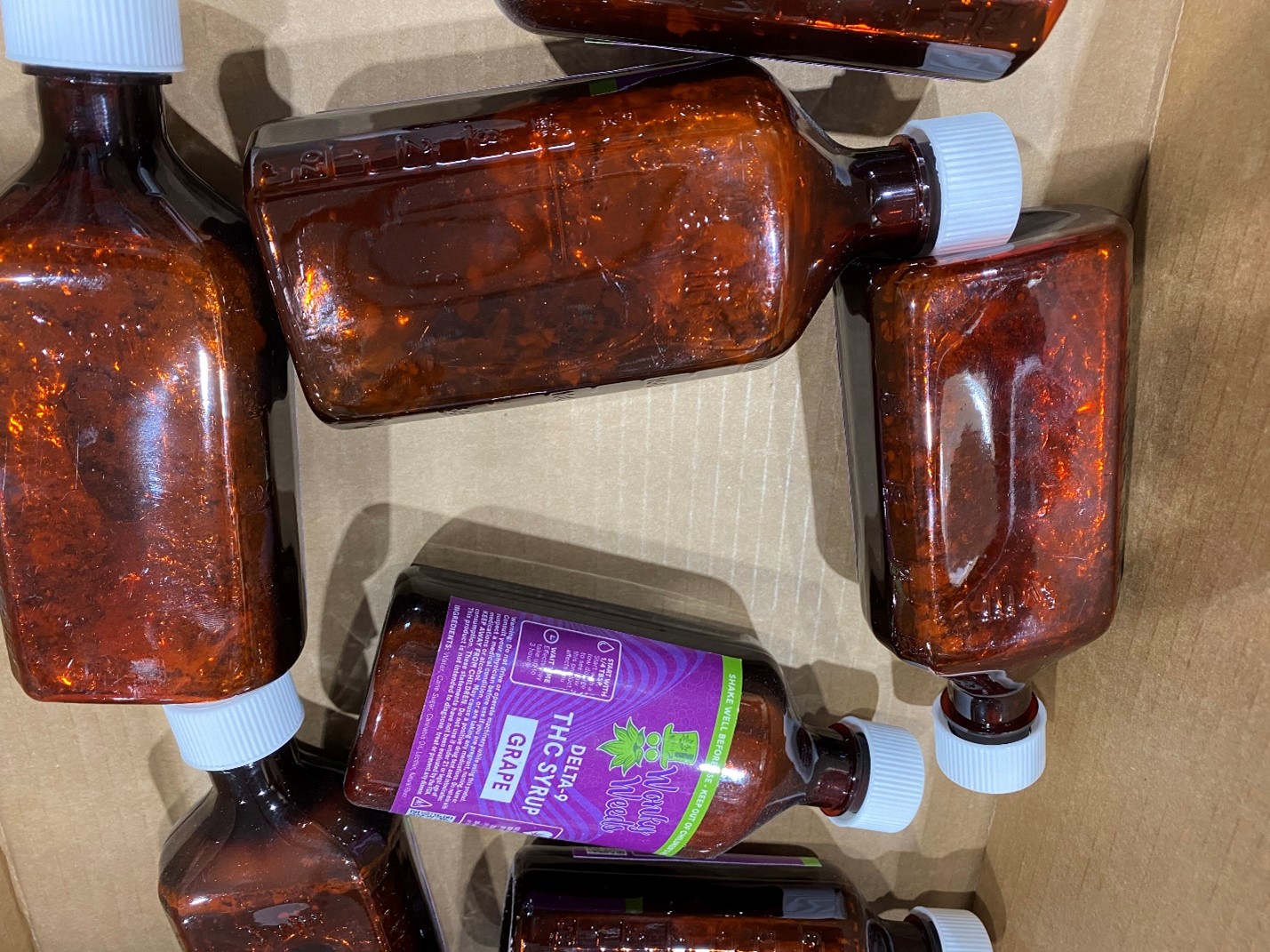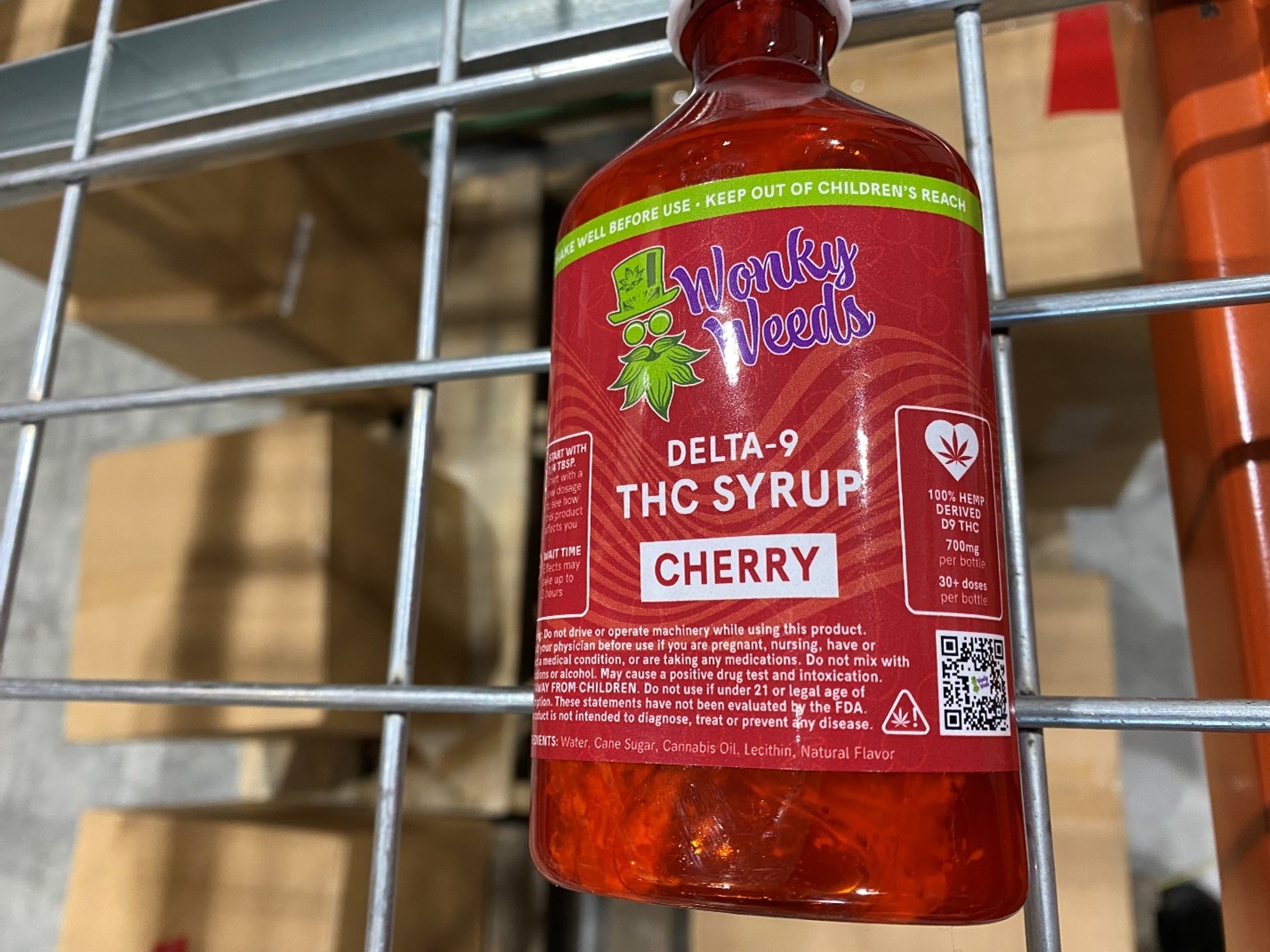Haley Madson, a first-grade teacher at St. Anne’s School in Le Sueur, has been named the 2023 recipient of the Minnesota Agriculture in the Classroom (MAITC) Outstanding Teacher Award. This annual award recognizes teachers for their creative efforts to integrate agriculture into their classrooms to increase agricultural literacy.
Madson is an advocate for agricultural education at St. Anne’s and uses her lessons to inspire students to think about how deeply agriculture impacts their lives from a young age.
“I want my students to realize that when learning about agriculture, they will be using reading, math, social studies, and science skills,” she says. “There is a connection between agriculture and animals, the economy, the environment, technology, and overall way of life. It is important to give students opportunities to explore those connections starting in elementary school.”
Madson will receive a $500 stipend and have up to $1,500 of her related expenses paid to attend the National Agriculture in the Classroom (NAITC) Conference this June in Orlando, Florida.
All Minnesota licensed K-12 educators who creatively integrate agricultural concepts into non-agricultural education classroom settings are eligible for the Outstanding Teacher Award. Applications are reviewed by a committee of MAITC Foundation board members, who select the recipient each winter.
MAITC is a partnership between the Minnesota Department of Agriculture (MDA) and the MAITC Foundation that seeks to increase agricultural literacy through K-12 education. Visit the MAITC website for more information and free educational resources.

Teacher Haley Madson
###
Media Contact
Logan Schumacher, MDA Communications
651-201-6193
Logan.Schumacher@state.mn.us
Many farmers and applicators will soon apply anhydrous ammonia (NH3) prior to planting or sidedress after planting. Even with a rush against time and the weather, safety should never be compromised. Accidents involving anhydrous ammonia have proven how dangerous and deadly the chemical can be when not handled properly.
The Minnesota Department of Agriculture (MDA) is providing the following tips to farmers and applicators so they can safely apply anhydrous ammonia.
- Always wear appropriate goggles and gloves. Never wear contact lenses.
- Be sure to have a clean, adequate emergency water supply of at least 5 gallons.
- Exercise caution when making connections and disconnections as if lines contain anhydrous ammonia.
- Stand upwind when connecting, disconnecting, bleeding lines, or transferring NH3. Also, close, bleed, disconnect, and secure valves and transfer lines when taking breaks or disconnecting lines, and be sure to handle hose end valve by the valve body.
- Position equipment away and downwind from homes, people, and livestock.
Safety is also key to those maintaining anhydrous ammonia equipment. Never assume NH3 lines are empty, always wear proper protective equipment, and have access to safety water.
When towing a nurse tank down the road, drive sensibly. Do not go any faster than 30 miles per hour, display a slow-moving vehicle (SVM) emblem visible from the rear, and be sure the tank is secured to the tractor or truck with two separate, independent chains that supplement the hitch pin/clip.
If an accident or spill occurs, immediately call 911 and then the Minnesota Duty Officer at 1-800-422-0798 or 651-649-5451.
You can find more safety, storage, and transportation information on the MDA’s website at www.mda.state.mn.us/nh3.
###
Media Contact
Allen Sommerfeld, MDA Communications
651-201-6185
Allen.Sommerfeld@state.mn.us
The Rural Finance Authority (RFA) Board has declared an emergency for all 87 counties in the State of Minnesota in response to this winter’s excessive snow and winds. This makes zero-interest Disaster Recovery Loans available for Minnesota farmers whose operations have sustained physical property damage or loss of livestock since January 2023.
“The RFA Board’s declaration is an important step in helping Minnesota farmers affected by the extreme weather we’ve experienced this winter,” said Minnesota Agriculture Commissioner Thom Petersen. “I encourage those who have endured damages to explore these zero-interest loans, especially if you were not insured or were underinsured.”
The Disaster Recovery Loan Program offers affordable financing to clean up, repair, or replace farm structures and replace livestock that may have been destroyed due to high winds and the weight of snow, sleet, and ice this year. The funds are available to farmers for expenses not covered by insurance.
Eligible farmers will work with their local lender to secure the loans from the RFA.
More information, including full eligibility requirements, can be found on the Disaster Recovery Loan Program webpage.
###
Media Contact
Logan Schumacher, MDA Communications
651-201-6193
Logan.Schumacher@state.mn.us
A new grant opportunity for organizations that support emerging farmers is now open for applications through the Minnesota Department of Agriculture’s (MDA) Rural Finance Authority (RFA).
The Emerging Farmer Technical Assistance Grant is available to those who provide technical assistance services to emerging farmers in Minnesota. Grant funds can also be used by these organizations to pay up to 65% of emerging farmers’ premium expenses for up to two years under the USDA Micro Farm Crop Insurance program.
“Access to culturally appropriate technical assistance is a top need for Minnesota’s emerging farmers,” says Patrice Bailey, assistant commissioner at the MDA. “This grant is an important tool to support farmers and producers across the state in overcoming disparities and barriers to opening new pathways to agriculture.”
Technical assistance consists of helping farmers with financials, business planning, record keeping, regulations, land access, marketing, applying for state and federal programs, and/or other farm business needs.
Emerging farmers include farmers who are American Indian or Alaskan Natives, Black or African American, Hispanic or Latino, Asian, Pacific Islander, members of a community of color, women, veterans, persons with disabilities, LGBTQIA+, or any other emerging farmers as determined by the commissioner of agriculture.
Applications for the grant are due by June 26, 2023, at 8 a.m. The RFA will award $540,000 in one-time grants through a competitive review process, with a maximum award amount of $100,000 and a minimum award amount of $10,000. Decisions are expected in July 2023.
For more information and to access the application materials, visit the Emerging Farmer Technical Assistance Grant webpage.
###
Media Contact
Logan Schumacher, MDA Communications
651-201-6193
Logan.Schumacher@state.mn.us
Farm Safety Working Group, April 2023
The Farm Safety Working Group (FSWG) is an informal collaboration between state agencies, higher education institutions, agriculture membership organizations, farm safety advocates, private sector companies, and labor and safety organizations focused on improving safety in agriculture.
The FSWG’s purpose is to provide a forum to discuss safety issues in agriculture, connect groups and organizations who are working on farm safety, and organize a collective effort to improve agricultural safety.
Contact us for meeting details.
The Minnesota Department of Agriculture (MDA) is alerting consumers to avoid consuming any flavor of Wonky Weeds brand delta-9 tetrahydrocannabinol (THC) syrup due to product contamination with mold. During a recent inspection, the Minnesota Board of Pharmacy identified mold growth in the THC syrup products. Customers who purchased these products should discard them and not use them. No illnesses associated with mold contamination in these products have been reported at this time in Minnesota.
All Wonky Weeds brand delta-9 THC syrups made by Wonky Confections/Northland Vapors are affected by this advisory. Products were distributed in Minnesota and nationally through internet and retail sales. Product flavors include grape, cherry, blue razz, and pineapple.
Certain mold strains are dangerous because they cause allergic reactions and respiratory problems in susceptible populations. Some mold produces poisonous mycotoxins and aflatoxins that can make people sick. Acute symptoms from mold exposure can vary and may include diarrhea, vomiting, stomach cramps, skin irritation, respiratory issues, or itchy eyes, nose, or throat.
Contact your health care provider if you have become ill after consuming Wonky Weeds delta-9 THC syrup. Report any adverse events with these products or any other cannabis-derived products to the FDA via MedWatch.


###
Media Contact
Larry Schumacher, MDA Communications
Email: larry.schumacher@state.mn.us
Phone: 651-201-6629

